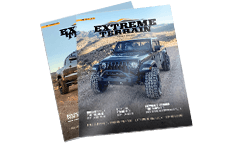Understanding Automotive Parts: A Dive into Nissan Titan Differentials (2004-2015)
Role of Differentials in an Automobile
Understanding the intricacies of automotive parts, particularly in relation to the 2004-2015 Nissan Titan differentials, requires an intimate knowledge of technical specifications and engineering details. Differentials are critical components of any vehicle, allowing for differences in wheel speed and facilitating smooth turns without wheel skid. Essentially, they divide the engine torque two ways, allowing the wheels to rotate at different speeds.Key factors Shaping Functionality and Integrity of Differentials
There are several key factors that shape the functionality and integrity of differentials over time. This includes the age of the vehicle, mileage, operating conditions, and maintenance history. Understanding these intricacies can help guide informed decisions around part selection and longevity. With older vehicles or those with high mileage, the wear and tear may necessitate more frequent replacements or repairs. On the other hand, vehicles in harsh operating conditions or with poor maintenance histories may have compromised differential integrity, affecting its performance and calling for more thorough checks and possible replacements.The Composition and Manufacturing of Differentials
A differential, such as those found in the 2004-2015 Nissan Titan, is typically constructed from steel due to its exceptional strength and durability. However, manufacturing processes and quality standards can greatly affect the overall product. The metal must be precisely machined, often involving computer numeric control (CNC) machines for extreme accuracy, followed by heat treatment for enhanced toughness and durability. The final product should adhere to Original Equipment Manufacturer (OEM) specifications for dimensions and fitment. Non-adherence to these standards can lead to imprecise fitment and potential breakdown or failure.Ensuring Compatibility
When considering compatibility, ensuring the right fit for specific makes and models is paramount. The differentials for the 2004-2015 Nissan Titan, for instance, would likely not be compatible with other models. This specificity is dictated by the unique engineering constraints and specifications of each vehicle model.Performance Characteristics of Differentials
Performance characteristics of differentials, as they relate to the 2004-2015 Nissan Titan, should also bear consideration. Torsen (Torque-Sensing) limited slip differentials, for example, offer increased traction and handling capabilities, while open differentials—though less performance-oriented—offer a simpler, more economical solution.Differentials and Related Components
Moreover, car enthusiasts often modify other related components in conjunction with the differentials. This includes the gearbox, drive shafts, and axles. Upgraded components can substantially enhance overall vehicle performance and handling. For instance, a ring and pinion gear set with a higher ratio can provide faster acceleration at the cost of a lower top speed. The nuances of automotive parts, specifically differentials, requires an in-depth understanding of their engineering specifications, compatibility, and other characteristics. An intricate web of parts and processes, it is crucial to make well-informed decisions about purchasing, installing, and maintaining these components to ensure optimal vehicle performance, efficiency, and safety.Fitment Includes:
- 2004, 2005, 2006, 2007, 2008, 2009, 2010, 2011, 2012, 2013, 2014 and 2015 Nissan Titan
- LE, SE, XE, PRO-4X, S, SL, SV
*Please see product pages for any exceptions.




















